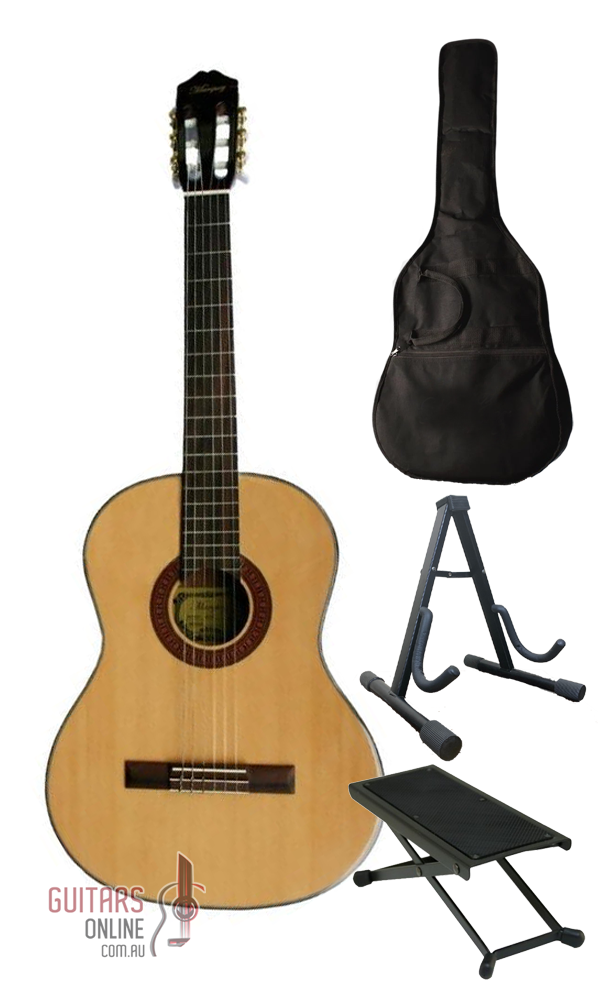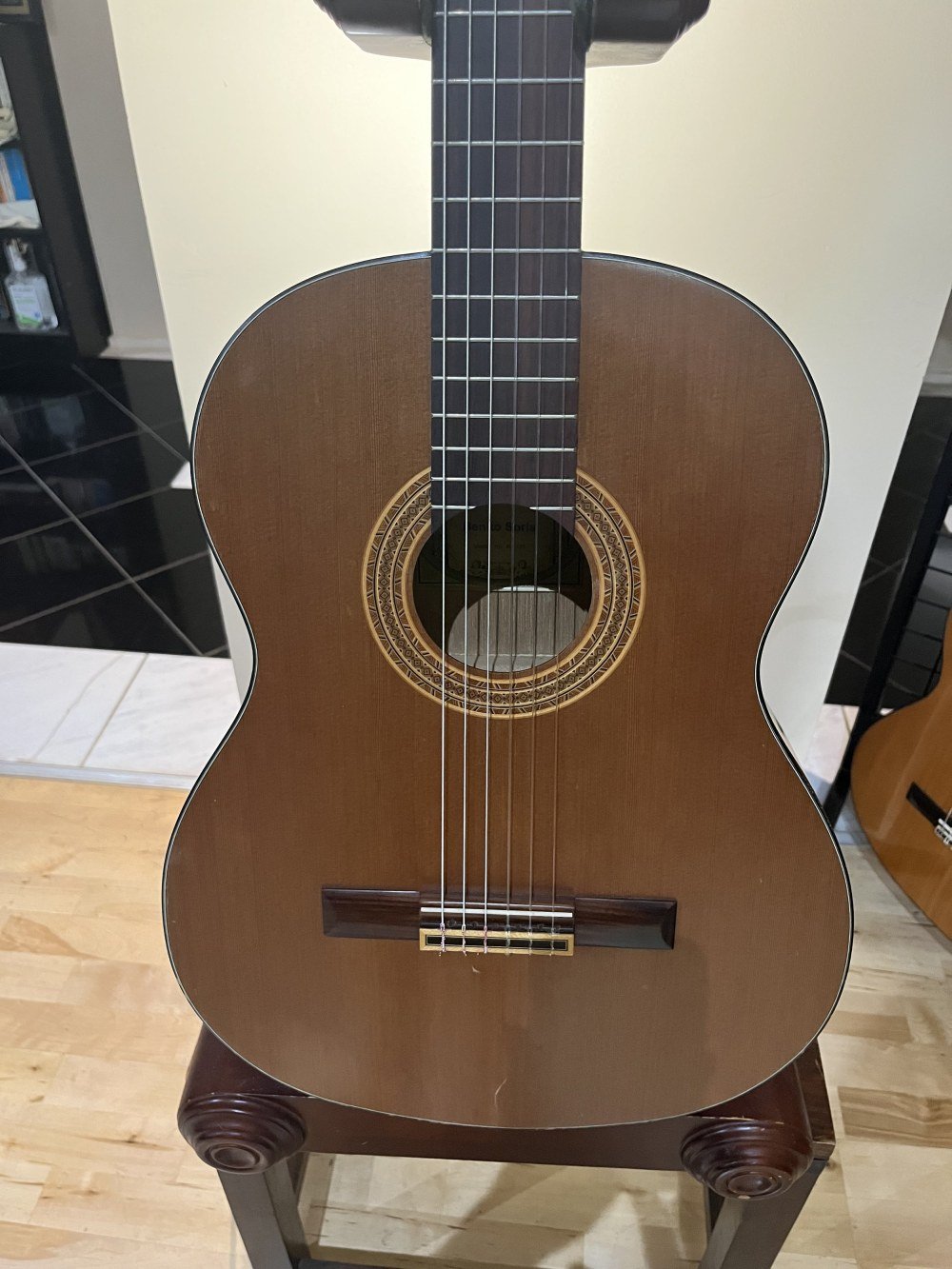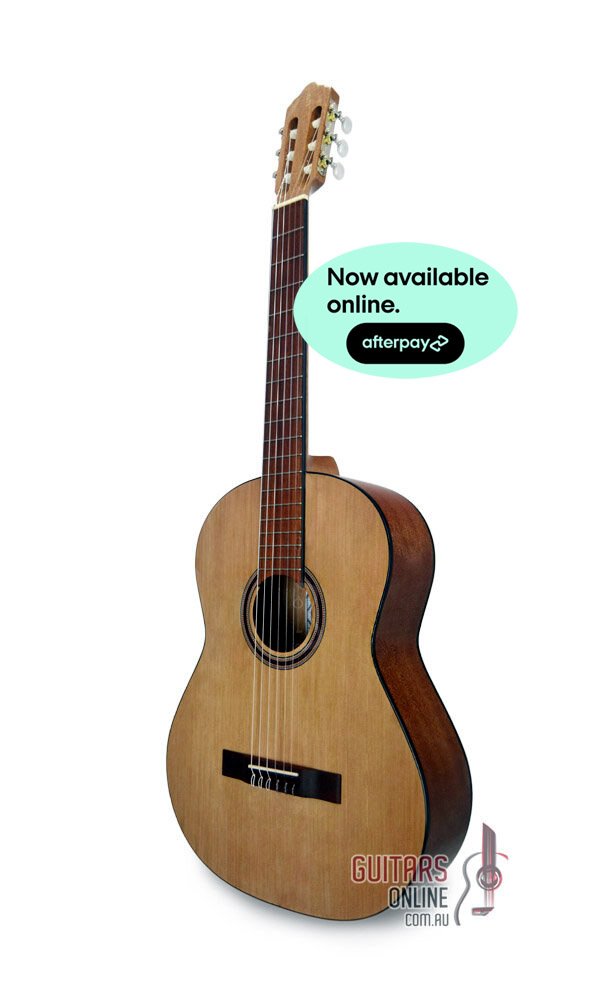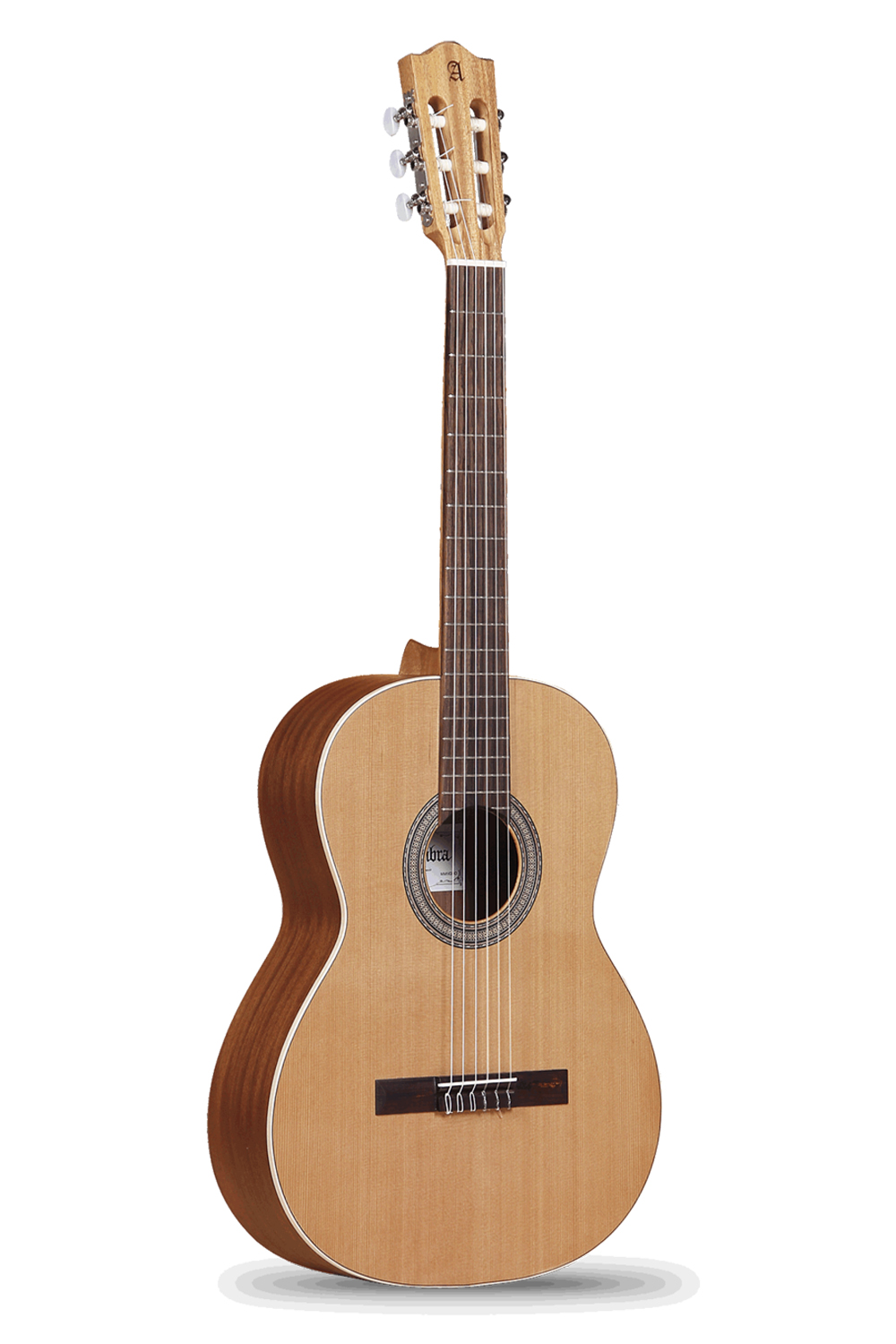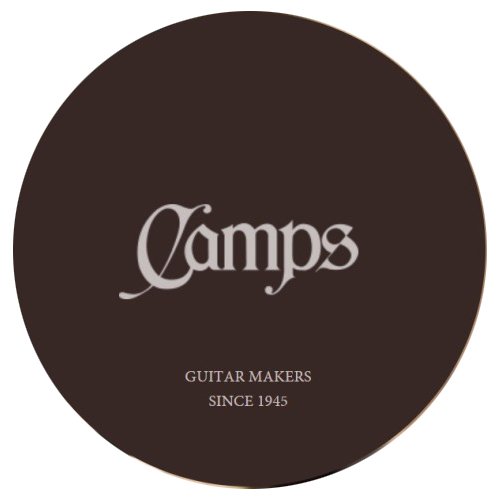Nylon String Guitars
The nylon string guitars in our GuitarsOnline range include both classical guitars and cutaway/crossover guitars.
A Selection of Our Range of Nylon String Classical Guitars

Our Nylon String Guitar Brands
Our Range of Nylon String Cutaway & Crossover Guitars




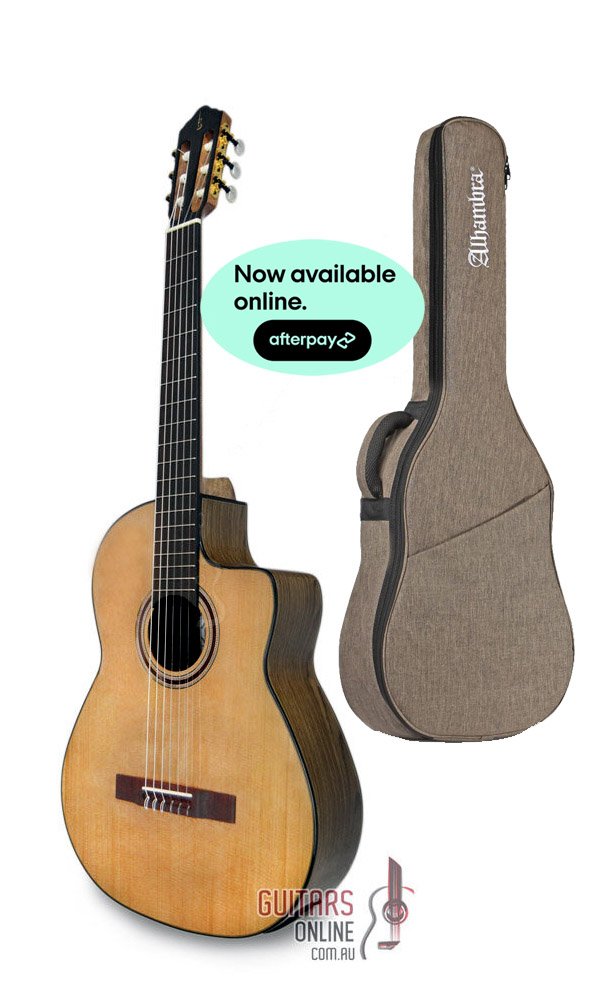
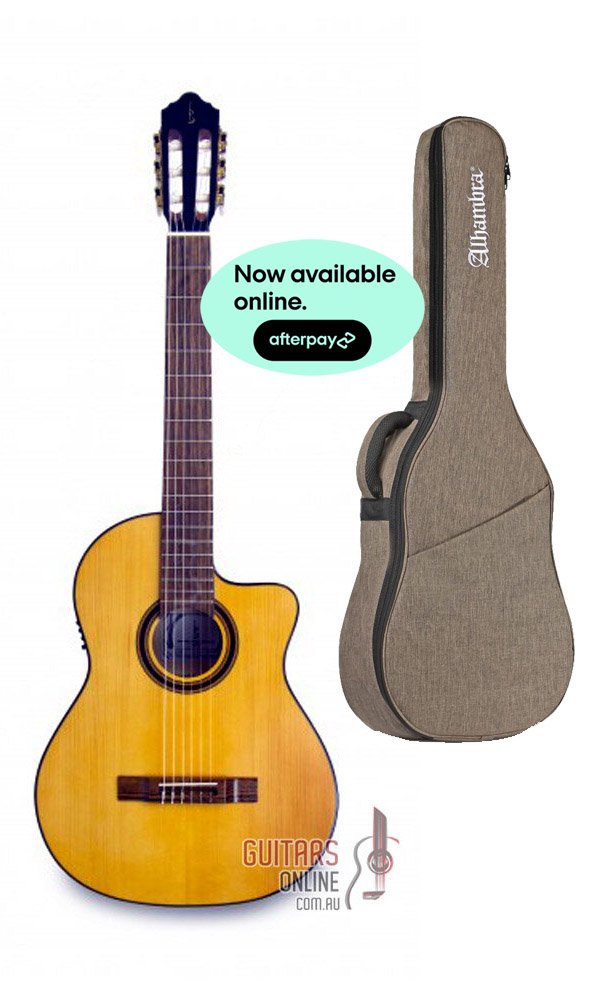
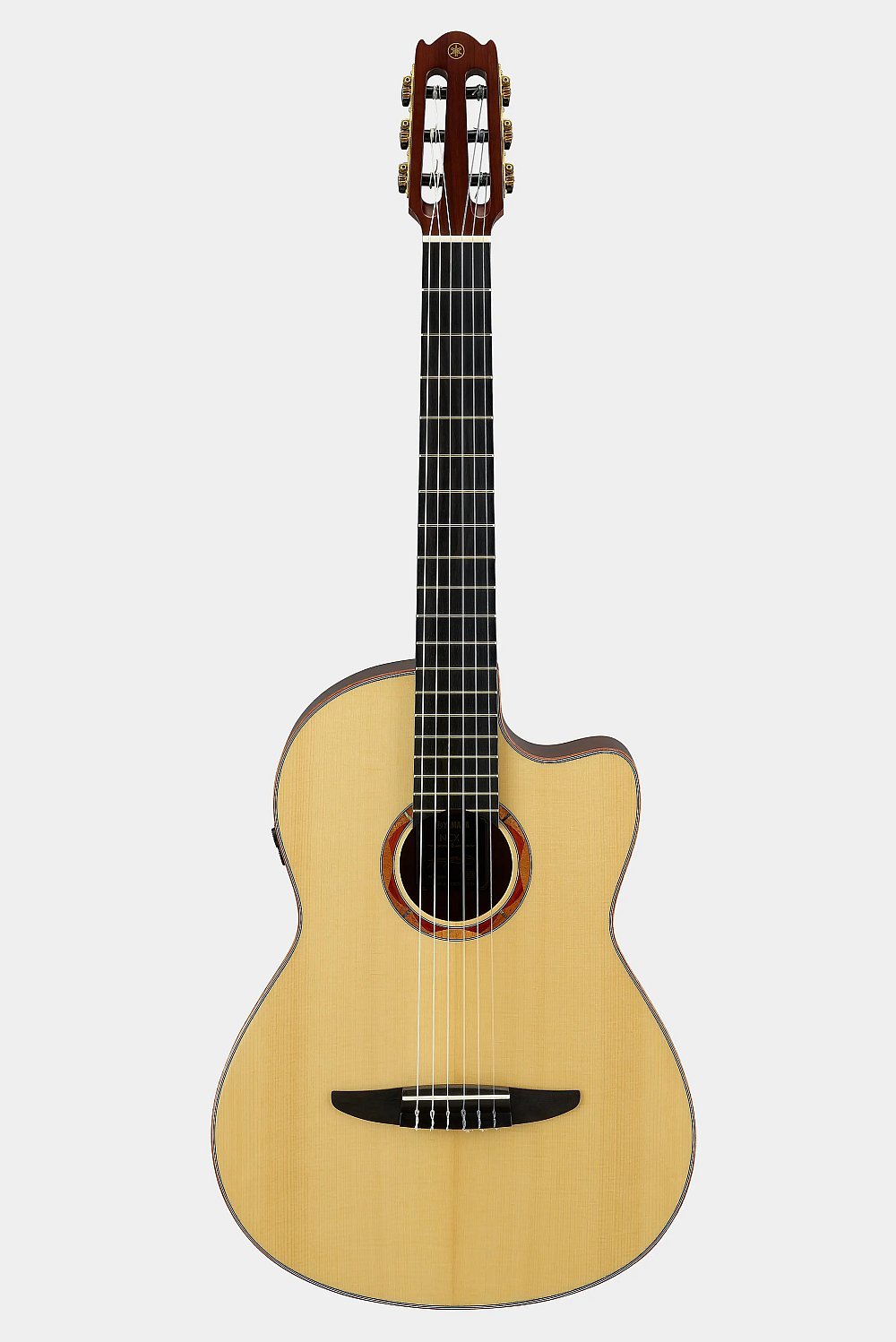



The Enchanting World of Nylon String Guitars: Tradition, Music, and Craftsmanship
What is a Nylon String Guitar?
A nylon string guitar, often referred to as a classical guitar, is a style of acoustic guitar characterized primarily by its nylon strings, as opposed to the steel strings used in other varieties of acoustic guitars.
This key distinction endows nylon string guitars with a notably softer, warmer, and mellower sound, which is particularly favored in classical and fingerstyle music genres.
Nylon string guitars are designed with specific features to complement their unique sound and playing style.
One of the most noticeable differences is the wider neck, which provides increased space between the strings.
This design is crucial for the intricate fingerpicking techniques that are integral to playing nylon string guitars.
The body of these guitars is typically crafted from select tonewoods such as cedar or spruce for the soundboard, and rosewood or mahogany for the back and sides, contributing to the instrument's resonant and rich tonal qualities.
This construction is pivotal in producing the distinctive sound that nylon string guitars are renowned for.
These guitars are predominantly used in classical music, where the softer tone and dynamic range of nylon strings enable players to express nuanced and delicate musical pieces.
However, the appeal of nylon string guitars extends beyond classical music, finding a place in Latin, flamenco, folk, and various other musical styles that benefit from their unique sound qualities.
Nylon string guitars are appreciated not only for their distinct sound but also for their playability.
The softer nylon strings are gentler on the fingers, making these guitars a popular choice for both beginners and seasoned musicians.
Their versatility and the intimate musical experience they provide make nylon string guitars a beloved choice among a wide array of players and music enthusiasts.
The world of classical guitars and nylon string guitars, is rich with history, artistry, and a distinctive sound that has captivated audiences for centuries.
Nylon string guitars, often synonymous with classical guitars, are a cornerstone of the musical instrument world.
Famed for their gentle, melodious sound, these guitars have a rich history and a significant role in various music genres.
History of Nylon String Guitars
The nylon string guitar's origins can be traced back to early stringed instruments from the Renaissance and Baroque periods.
However, the modern classical guitar, as we know it, began to take shape in the 19th century.
The transition from gut strings to nylon strings occurred in the 1940s, revolutionizing the instrument's sound.
These changes led to the nylon string guitar being embraced in classical music circles for its rich, warm tonal qualities.
Nylon String Guitar Music
The repertoire for nylon string guitars is vast and diverse. Initially rooted in classical traditions, it has expanded into flamenco, jazz, folk, and contemporary music.
Composers like Fernando Sor, Francisco Tárrega, and Heitor Villa-Lobos have contributed significantly to classical guitar music, creating pieces that showcase the instrument's expressive range and unique sound.
Luthiers of Nylon String Guitars
Luthiers, or guitar makers, are integral to the legacy of nylon string guitars.
Renowned luthiers like Antonio de Torres, Hermann Hauser, and José Ramírez have set high standards in craftsmanship.
Modern luthiers continue to innovate while maintaining the traditional essence of the instrument, ensuring that each guitar is not just an instrument, but a piece of art.
Manufacturing and Techniques for Nylon String Guitars
The manufacturing of nylon string guitars is an art form that combines traditional craftsmanship with modern techniques.
Key processes include selecting the right woods, shaping the soundboard, assembling the body, and stringing.
Innovations like double-top construction and lattice bracing have enhanced the sound quality of these guitars.
The process demands precision and skill, as the construction directly impacts the instrument's sound and playability.
Woods Used in Nylon String Guitars
The choice of wood is critical in crafting nylon string guitars.
Traditionally, spruce or cedar is used for the top, each offering distinct tonal characteristics.
Spruce provides a bright, clear sound, while cedar offers a warmer tone.
For the back and sides, luthiers often use rosewood or mahogany, known for their durability and contribution to the guitar's overall sound.
The combination of these woods results in the instrument's signature warm, resonant sound.
What’s Next
Nylon string guitars, with their rich history, unique sound, and the artistry involved in their creation, continue to be a beloved choice for musicians around the world.
Whether in the hands of a classical virtuoso, a flamenco artist, or a hobbyist, these guitars carry a legacy of musical expression.
Their evolution, driven by skilled luthiers and the demands of diverse music styles, underscores their enduring appeal and significance in the world of music.
More Classical Guitar and Nylon String Guitar Resources
For more nylon string guitar and classical guitar resources, please visit the GuitarsOnline Guitar Buyers Resource Centre


